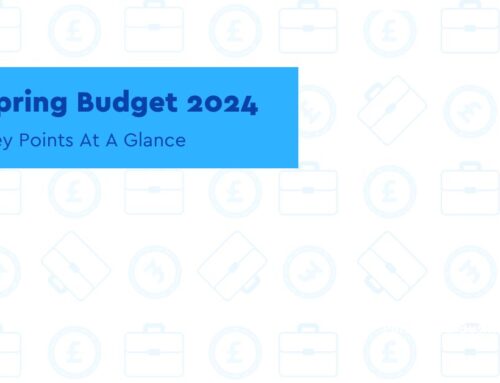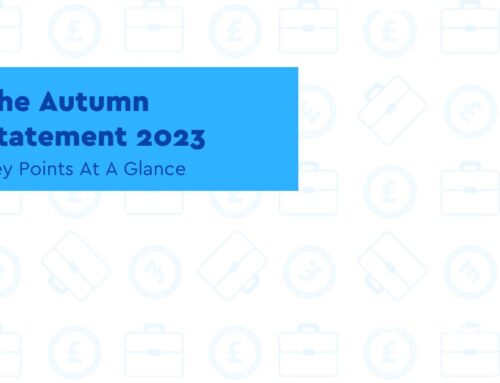Autumn Budget and Spending Review – what you need to know
Key Points
- Business rates reform includes a 50% cut to rates for eligible retail, hospitality and leisure businesses in 2022 to 2023
- The annual investment allowance will remain at its current level of £1 million until March 31, 2023
- People working and claiming Universal Credit will soon take home more money, after the Chancellor announced the taper rate will be reduced from 63% to 55%
Rishi Sunak delivered his third Budget as Chancellor to the Commons earlier today where he announced a series of measures for business across reforms, rates and incentives, while also reducing the universal credit taper.
Investing in growth and supporting businesses
Business rates reform
The publication of a long-awaited review of business rates brought with it a series of measures to adjust the system.
This included a 50% cut to rates for eligible retail, hospitality and leisure businesses in 2022 to 2023, up to a cap of £110,000.
Additionally, the rate multiplier will be frozen for 2022 to 2023, which the Treasury says will save businesses in England £4.6 billion over the next five years.
Other reforms included the introduction of a new investment relief for green technology, an improvement relief for businesses expanding their properties, and a move to three-yearly revaluations from 2023, instead of five years as it stands now.
Taken together, Chancellor Rishi Sunak said the measures announced in the Budget amounted to a £7bn cut to business rates.
Tax relief in the Arts sector
The headline rates of tax relief will be temporarily increased for theatres, museums, orchestras and galleries across the UK from October 27, 2021 to March 31, 2024, increasing the relief organisations can claim as they invest in new productions and exhibitions.
Annual investment allowance extended
The annual investment allowance will remain at its current level of £1 million until March 31, 2023, instead of ending on December 31, 2021 as planned.
The allowance, which allows companies to deduct qualifying capital allowances from their profits before tax, previously stood at £200,000 but was raised from January 1, 2019 onwards to encourage investment.
R&D tax credit changes
The Chancellor also announced plans to reform R&D tax reliefs, by including data and cloud costs as qualifying expenditure, as well as refocusing the reliefs on activity in the UK.
Details on these changes have not yet been released, but the Government says these will form part of its “further tax administration and maintenance announcements” later in the autumn.
Supporting people
National Living Wage
From April 1, 2022 the National Living Wage will increase by 6.6% to £9.50 an hour. Young people and apprentices will also see pay increases as the National Minimum Wage rates will also increase next April.
On average, people earning minimum wage can expect to see an extra £1,074 a year before tax. The freeze on public sector pay will also end on April 1 next year, paving the way for around 5.7 million people to get a pay rise.
The chancellor said public sector workers, like nurses, teachers and police officers, will see “fair and affordable pay rises” across the whole Spending Review period – within the next year.
The decision on how much extra money public sector workers will get is not due to be made until next year, once the pay review bodies have made their recommendations.
Universal Credit taper cut
People working and claiming Universal Credit will soon take home more money, after the Chancellor announced the taper rate will be reduced from 63% to 55%.
Mr Sunak said: “The Universal Credit taper withdraws support as people work more hours. The rate is currently 63%, so for every extra £1 someone earns, their Universal Credit is reduced by 63p.
“Let us be in no doubt: this is a tax on work – and a high rate of tax at that.”
It will be welcome news after the £20 per week UC uplift introduced during the pandemic was removed – a move which received great backlash.
The taper change will come into effect by December 1.
Investment
- Additional investment of £170 million in 2024-25 to increase the hourly rate to be paid to early years providers to deliver the government’s free childcare hours
- New investment of £302 million to fund new programmes to support parents, provide bespoke breast feeding services and parent-infant mental support, and funding to rollout Family Hubs across England
- £639 million resource funding per annum by 2024-25 as part of the government’s commitment to end rough sleeping in England, an 85% cash increase compared to 2019-20. This brings total funding to £1.9 billion resource and £109 million capital investment over the SR21 period, and builds on the government’s achievement of having reduced rough sleeping numbers by a third between 2019 and 2020
Funding for programmes, skills and apprenticeships
- An increase in adult skills funding by 29% in real terms compared to 2019-20 – this funding will go towards a range of policies in England such as continuing the Prime Minister’s Lifetime Skills Guarantee to offer free Level 3 courses for adults, and quadruple the current scale of Skills Bootcamps
- £560 million of new funding through the UK Shared Prosperity Fund for the new UK-wide Multiply programme which will support up to half a million adults to improve their numeracy
- New investment of £1.6 billion for 16–19-year olds’ education in England. This will maintain funding in the face of demographic growth and provide additional hours for learners who take T Levels
- Increases apprenticeship funding in England to £2.7 billion in 2024-25 and continue to invest over £900 million for each year of this Spending Review across Great Britain on work coaches to ensure Universal Credit claimants receive the best support to find employment
- Confirmed funding for the Restart scheme in England and Wales, to continue providing intensive and tailored support to long-term unemployed people to help them find work
- £90 million to extend the Job Entry Targeted Support Scheme to the end of September 2022 – helping those unemployed for between three and twelve months across Great Britain find work
Duties and rates
Fuel duty rates will be frozen UK-wide for the 12th consecutive year.
Alcohol duties will be frozen across the board for the third year running saving consumers £3 billion.
Public services
The new Health and Social Care Levy, along with an increase to the rates of dividend tax, will raise around £13 billion per year for spending on health and social care across the UK. This enables significant further funding for the NHS, for the government’s reforms to social care, public health and prevention programmes, and investment in training the workforce of the future.
- £2.3 billion over the next three years will transform diagnostic services with at least 100 community diagnostic centres across England – helping millions of patients access earlier diagnostic tests closer to home
- £2.1 billion over the next three years to support innovative use of digital technology so hospitals and other care organisations are as connected and efficient as possible, freeing up valuable NHS staff time and ensuring the best care for patients wherever they are
- £1.5 billion over the next three years for new surgical hubs, increased bed capacity and equipment to help elective services recover, including surgeries and other medical procedures
The Budget confirmed an additional £4.7 billion by 2024-25 for the core schools budget in England, over and above the SR19 settlement for schools in 2022-23, as well as £2.6 billion of capital funding for new school places for children with special educational needs and disabilities, and £1.8 billion of additional money for education recovery – in addition to the £1.4 billion announced in June 2021.
Investment of £11.5 billion will also be made available in the Affordable Homes Programme in England from 2021-26 to help build up to 180,000 new affordable homes – with 65% of funding for homes outside London.
Shipping, tonnage & seizing the opportunities of Brexit
The Government announced plans to modernise the UK’s Tonnage Tax regime to ensure that the shipping industry remains highly competitive in the global market.
The first Freeport tax sites will be in Humber, Teesside and Thames, and those Freeports will be able to begin initial operations from November.
A new UK Global Talent Network will work with businesses and research institutes to identify and attract the best global talent in key science and tech sectors.
The new £1.4 billion Global Britain Investment Fund will ensure that economic opportunities are spread more evenly across the UK by supporting investment in the UK’s life sciences, offshore wind and automotive manufacturing sectors.
A fund of £11 billion of Overseas Development Assistance (ODA) was announced, including doubling the UK’s international climate finance to £11.6bn between 2021-22 and 2025-26 and £430 million to the Global Partnership for Education to help to educate young people, particularly for girls (our largest ever contribution).
Furthermore, £703 million will be commited over the next three years to improve the safety, security and efficiency of the UK border.
Sunak also confirmed eligibility criteria for the new Scale-Up Visa, to help make it quicker and easier for fast-growing businesses to bring in highly-skilled individuals.
Meanwhile, a 50% cut in Air Passenger Duty for flights between airports in England, Scotland, Wales and Northern Ireland was announced – which is set to benefit around nine million passengers in 2023-24 and will be delivered via a new domestic band.
A new rate of Air Passenger Duty of £91 will also come into play on flights of 5,500 miles or more. These reforms apply across the UK except for the direct long-haul rates for Northern Ireland which are devolved.
The alcohol duty system will be overhauled to make it fairer and more straightforward, with drinks taxed in proportion to their alcohol content and duty rules simplified.
Autumn Budget 2021: Key business tax announcements
Business rates reform
The publication of a long-awaited review of business rates brought with it a series of measures to adjust the system.
This included a 50% cut to rates for eligible retail, hospitality and leisure businesses in 2022 to 2023, up to a cap of £110,000. The government will also increase the frequency of business rates revaluations so they take place every three years instead of every five, starting in 2023.
Additionally, the rates multiplier will be frozen for 2022 to 2023, which the Treasury says will save businesses in England £4.6 billion over the next five years.
Other reforms included the introduction of a new investment relief for green technology, an improvement relief for businesses expanding their properties, and a move to three-yearly revaluations from 2023, instead of five years as it stands now.
Taken together, Chancellor Rishi Sunak said the measures announced in the Budget amounted to a £7bn cut to business rates.
Annual investment allowance extended
The annual investment allowance will remain at its current level of £1 million until 31 March 2023, instead of ending on 31 December 2021 as planned.
The allowance, which allows companies to deduct qualifying capital allowances from their profits before tax, previously stood at £200,000 but was raised from 1 January 2019 onwards to encourage investment.
Corporation tax
The corporation tax rate will remain at 19% for 2022/23, as previously announced.
The Chancellor re-confirmed the UK’s main rate of corporation tax will increase to 25% from April 2023.
A small-profits rate will be introduced for companies with profits of £50,000 or less, which will continue to be charged at 19%.
Companies with profits between £50,000 and £250,000 will pay tax at the main rate, but this will be reduced by a marginal relief, creating a tapered corporation tax rate. The companies eligible for marginal relief, and the way it is calculated, will depend on detailed rules and exclusions.
Employers’ National Insurance contributions (NICs)
The Government has legislated a new 1.25% health and social care levy. In 2022/23 only, employers’ class 1 NICs will increase by 1.25% from 13.8% to 15.05%.
From April 2023, the levy will be separated out and will also apply to the earnings of individuals working above state pension age. Meanwhile, the employers’ NIC rate will return to its 2021/22 level.
The employers’ class 1 NIC secondary threshold has been increased from £8,840 to £9,100 per year from 2022/23.
Annual investment allowance extension
The temporary £1m annual investment allowance that was due to reduce back down to £200,000 on 1 January 2022 will be extended until 31 March 2023.
Company car tax
As announced at Budget 2020, it was confirmed that the company car tax rates already announced for 2022/23 will remain frozen until 2024/25.
Company car fuel benefit
From 6 April 2022, the company car fuel benefit multiplier will increase in line with the Consumer Prices Index (CPI) rate of inflation from £24,600 to £25,300.
Company van tax
From 6 April 2022, the van benefit charge and van fuel benefit charges will both increase in line with CPI.
The van benefit charge will increase from £3,500 to £3,600 and the van fuel benefit charge will increase from £669 to £688.
Residential property developers’ tax
It was confirmed a new tax will be introduced from April 2022 on the profits that companies and corporate groups derive from UK residential property development. The tax will be charged at 4% on profits exceeding an annual allowance of £25 million.
Research and development (R&D) relief
R&D tax relief reforms will take effect from April 2023, which will expand qualifying R&D expenditure to include data and cloud costs.
Similarly, changes will be made to target abuse, improve compliance and refocus the support towards innovation in the UK, rather than overseas. Further details of these changes will be released at a later date.
Annual tax on enveloped dwellings (ATED)
From 1 April 2022, the ATED annual charges will rise by 3.1%. While there are multiple ATED bands, the lowest ATED charge will increase from £3,700 to £3,800 and the highest from £237,400 to £244,750.
Diverted profits tax
From April 2023, the rate of diverted profits tax will increase from 25% to 31%.
Abolition of cross-border group relief
It was announced that legislation permitting UK companies in certain circumstances to claim group relief for losses in the European Economic Area (EEA) would be repealed.
The measure also amends the legislation that limits the amount of losses that an EEA resident company trading in the UK through a UK permanent establishment can surrender as group relief, to be aligned with the rules with companies elsewhere in the world.
This measure will have effect for accounting periods ending on or after 27 October 2021. Transitional arrangements will apply for accounting periods which straddle this date.
Cultural reliefs
From 27 October 2021, the rates of corporation tax relief that are collectively known as the ‘cultural reliefs’ will be increased. The rate of relief will increase to 45% or 50% for the theatre tax relief, 50% for the orchestra tax relief and 45% or 50% for the museums and galleries exhibition tax relief. The rates will taper back down from 1 April 2023 before returning to their current levels from 1 April 2024.
The tax relief available for qualifying companies in the museum and gallery sectors has been extended to 31 March 2024.
Corporate re-domiciliation
The Government intends to make it possible for companies to move their domicile to the UK and make relocation easier.
Autumn Budget 2021: Key personal tax announcements
Universal Credit taper rate cut
This Budget’s ‘rabbit from a hat’ came at the end of the speech – an 8% reduction to the taper rate for Universal Credit.
People working and claiming Universal Credit will soon take home more money, after the chancellor announced the taper rate will be reduced from 63% to 55%.
Mr Sunak said: “The Universal Credit taper withdraws support as people work more hours. The rate is currently 63%, so for every extra £1 someone earns, their Universal Credit is reduced by 63p.“Let us be in no doubt: this is a tax on work – and a high rate of tax at that.”
It will be welcome news after the £20 per week UC uplift introduced during the pandemic was removed – a move which received great backlash.
The taper change will come into effect by December 1.
The measure will allow claimants to keep an additional 8p for every £1 they earn.
Rates & allowances
The tax-free personal allowance throughout the UK remains at £12,570 for the 2022/23 tax year.
The basic-rate band stays at £37,700, along with the higher-rate threshold at £50,270. The additional-rate band is unchanged at £150,000. Any changes to the thresholds in Scotland should be announced at the Scottish Budget in December 2021.
The 0% band for the starting rate for savings income is unchanged at £5,000 for the 2022/23 tax year and applies across the UK.
The personal savings allowance will remain at £1,000 for basic-rate taxpayers and £500 for higher-rate taxpayers. The allowance is not available to additional-rate taxpayers.
The transferable marriage allowance stays at £1,260 for the 2022/23 tax year.
Dividends
The dividend allowance remains at £2,000 for 2022/23, however, each of the three tax bands will increase by 1.25%. From 6 April 2022, the basic rate for dividends will rise to 8.75%, the higher rate will increase to 33.75%, and the additional rate will be 39.35%.
National living wage
The national living wage applicable to over-23s increases by 6.6% from £8.91 to £9.50 an hour, from 1 April 2022.
National Insurance contributions
The rates at which employees pay class 1 primary contributions and the self-employed pay class 4 National Insurance contributions (NICs) will rise by 1.25%.
From April 2022, the main class 1 NICs rate for employees will increase from 12% to 13.25% and the main class 4 NICs rate for the self-employed will increase from 9% to 10.25%. The higher rates for both class 1 and class 4 NICs will also increase from 2% to 3.25%.
From April 2023, this 1.25% health and social care levy will be formally separated out and at this point, the rates of class 1 and class 4 NICs will return to their 2021/22 levels.
The threshold for class 1 and class 4 NICs will rise from £9,568 to £9,880 for 2022/23, while the upper-earnings limit and upper-profits limit will stay at £50,270. At the same time, the class 2 NICs rate which applies to the self-employed will increase from £3.05 to £3.15 per week, while the self-employed small-profits threshold will rise from £6,515 to £6,725.
Capital gains tax (CGT)
The annual CGT exempt amount for individuals of £12,300 and £6,150 for trustees of settlements will be maintained at the current levels up to and including the 2025/26 tax year.
The lifetime limit on qualifying gains for business asset disposal relief will remain at £1m for 2022/23.
The lifetime limit for investors’ relief will also be kept at the current level of £10m. The 10% tax rate remains unchanged for both reliefs.
Capital gains tax on UK property
The time limit to report and pay capital gains tax on the disposal of UK residential property will be increased from 30 days to 60 days.
This change applies to completion of property sales made on or after 27 October 2021 and will apply to both UK and non-UK residents.
Where a gain arises from a mixed-use property, only the portion of the gain that is residential property should be reported and paid. This measure is only available to UK residents.
ISAs
All of the annual subscription limits will be unchanged for 2022/23. For ISAs, this will be £20,000 and for Junior ISAs and child trust funds it will be £9,000.
Pensions
The lifetime allowance for pension savings will remain at £1,073,100 until the 2025/26 tax year.
From 6 April 2028, the normal minimum pension age where savers can access their pensions without incurring an unauthorised tax charge will rise from 55 to 57 years old.
Making Tax Digital for income tax self-assessment
The requirement for sole traders and landlords with income over £10,000 to prepare for Making Tax Digital (MTD) has been delayed by one year and will now be introduced from 6 April 2024. General partnerships will not be required to join MTD for income tax self-assessment until 6 April 2025.
Inheritance tax
The individual nil-rate band will stay at £325,000 and the residence nil-rate band will also remain at £175,000. The taper threshold for the residence nil-rate band continues to start at £2m.
Basis period reform for the self-employed
Currently, a business’s profit or loss for a tax year is usually the profit or loss for the year up to the accounting date that ends within the tax year, called the ‘basis period’.
With effect from 6 April 2024, a business’s profit or loss for a tax year will be the profit or loss arising in the tax year itself, regardless of its accounting date. This measure removes the basis period rules and prevents any further overlap relief.
On transition to the tax year basis from 6 April 2023, all businesses basis periods will be aligned to the tax year and all outstanding overlap relief given.
Discovery assessments
Legislation will be passed to confirm that HMRC may use discovery assessments to recover tax charges relating to the high income child benefit charge, Gift Aid donations and certain pension charges.
Recovery Loan Scheme to be extended for six months
Key Points
- The scheme was set to end on December 31, but the Treasury said at the time that this was ‘subject to review’
- Sunak announced an extension of the Recovery Loan Scheme until June 30, 2022
Chancellor Rishi Sunak used his Autumn Budget 2021 to announce an extension of the Recovery Loan Scheme until June 30, 2022.
The scheme was set to end on December 31, but the Treasury said at the time that this was ‘subject to review’.
The Recovery Loan Scheme originally provided government-backed loans starting from £25,000 up to a maximum ceiling of £10m, with interest rates capped at 14.99%.
Within his speech, the Chancellor confirmed this scheme will only provide a maximum of £2m per business for applications from January 1, 2022.
Meanwhile the UK government will guarantee 70% of all funds provided to lenders instead of the 80% previously guaranteed.
In addition, the scheme will be open exclusively to small and medium-sized enterprises (SMEs) from January 1, 2022.
According to the British Business Bank, only 5,137 UK businesses have made use of the scheme so far, however it’s hoped that this extension will give more businesses opportunity to bounce back after the pandemic.
To prove your eligibility for the Recovery Loan Scheme, your small business must still be trading in the UK. You must also be able to prove the adverse financial implications of the Covid-19 crisis on your business and demonstrate its pre-pandemic viability.
It’s possible to apply for term loans or overdrafts worth between £25,001 and £2 million per business. In addition, SMEs can also seek invoice or asset finance worth between £1,000 and £2 million per business.
Overdrafts and invoice finance facilities will be provided for a maximum of three years. Meanwhile loan and asset finance facilities will be available for up to six years.
Autumn Budget 2021: Duties & other announcements
Landfill tax
Landfill tax is charged in England and Northern Ireland on material disposed of at a landfill site.
Standard and lower rates are being increased on 1 April 2022 as follows:
| Material sent to landfill | Rates from 1 April 2022 | Rates from 1 April 2023 |
| Standard rated | £98.60/tonne | £102.10/tonne |
| Lower rated | £3.15/tonne | £3.25/tonne |
Gaming duty
Gross gaming yield bands for gaming duty will increase in line with the retail prices index (RPI) rate of inflation from 1 April 2022.
Red diesel
From 1 April 2022, amendments will be made to the legislation to adjust the circumstances where use of red diesel will be allowed and will now specify the penalties that will apply, where the restrictions are contravened.
Vehicle excise duty (VED)
The Government has announced VED rates for cars, vans and motorcycles will increase in line with RPI from 1 April 2022. Rates for heavy goods vehicles will remain frozen and the HGV levy will continue to be suspended for another 12 months from 1 August 2022.
The temporary extension to road haulage cabotage will be extended until 30 April 2022.
Tobacco duty
From 6pm on 27 October 2021, the duty rates on all tobacco products will increase by RPI plus 2%, on hand-rolling tobacco products by RPI plus 6% and the minimum excise tax to RPI plus 3% .
Aggregates levy
The Government will freeze the aggregates levy rate for 2022/23 but intends to return to index-linking in future.
Fuel duty rates
Fuel duty rates will remain frozen for 2022/23.
Alcohol duty rates
Alcohol duty rates remain frozen for 2022/23 but the Government announced its proposals for reform of this tax, with the aim of simplifying an outdated system.
The number of main duty rates are to be cut from 15 to six. The duty rate applicable will now relate to a drink’s alcoholic strength rather than the type of drink – “the stronger the drink, the higher the rate”.
A new draught relief will also be introduced applying a lower rate of duty on draught beer and cider, served from containers of 40 litres or over.
Proposals for a new small producer relief were also announced extending the principles of the small brewers’ relief to include small cider makers and other producers making alcoholic drinks of less than 8.5% ABV.
The consultation ends on 30 January 2022 with the reforms taking effect in February 2023.
Tonnage tax reform
The Government announced a package of measures to reform the UK’s tonnage tax regime to come into effect in April 2022. This will include a preferential tonnage tax for a ship displaying the red ensign of the UK and remove the requirement for any ship in the regime to fly the flag of any EU country now that the UK has left the EU.
Air passenger duty
From 1 April 2023 flights between home nations will be subject to a lower ‘domestic band’ air passenger duty to support UK connectivity. A new ultra-long haul band, covering destinations with capitals located more than 5,500 miles from London, will also be introduced.
Reduced, standard and higher rates are being increased on 1 April 2022 as follows:
Reduced rate (lowest class of travel):
| Approximate distance in miles from London | From 1 April 2022 | From 1 April 2023 |
| Domestic (flights within UK) | N/A | £6.50 |
| Band A (0 to 2,000 miles) | £13 | £13 |
| Band B (from 2,001 to 5,500 miles) | £84 | £87 |
| Band C (over 5,500 miles) | N/A | £91 |
Standard rate (other than lowest class of travel):
| Approximate distance in miles from London | From 1 April 2022 | From 1 April 2023 |
| Domestic (flights within UK) | N/A | £13 |
| Band A (0 to 2,000 miles) | £26 | £26 |
| Band B (from 2,001 to 5,500 miles) | £185 | £191 |
| Band C (over 5,500 miles) | N/A | £200 |
Higher rate (flights on aircraft of 20 tonnes and above, with fewer than 19 seats):
| Approximate distance in miles from London | From 1 April 2022 | From 1 April 2023 |
| Domestic (flights within UK) | N/A | £78 |
| Band A (0 to 2,000 miles) | £78 | £78 |
| Band B (from 2,001 to 5,500 miles) | £554 | £574 |
| Band C (over 5,500 miles) | N/A | £601 |
Autumn Budget 2021: VAT
While the changes made to VAT have a limited impact, some of them relate to the problems caused by Brexit.
To ensure that motor dealerships in Northern Ireland have a level playing field with the rest of the UK there were two announcements on second-hand cars.
The second-hand margin scheme for vehicles in Northern Ireland
If the EU agrees, the Government will provide interim rules for the continued use of the second-hand margin scheme on the sale of second-hand vehicles (previously registered in the UK before 1 January 2021). The rules would apply retrospectively from 1 January 2021.
If no agreement is reached with the EU, VAT will apply on the full selling price of vehicles bought from Great Britain.
The second-hand motor vehicle export refund scheme
To replace the proposed interim arrangements above, the Government intends to introduce a new scheme.
Businesses that buy second-hand vehicles from Great Britain to sell in Northern Ireland or the EU will be able to recover an amount equivalent to the VAT that could be included in the vehicle’s purchase price.
This should mean that Northern Irish dealers account for a comparable amount of VAT to the amount dealers in Great Britain (who can still use the second-hand margin scheme) would account for on a similar sale.
Implementation of VAT rules in free zones
The most significant change to free zones is a new VAT charge for goods exiting the free zone and entering into free circulation within the UK.
The exit charge will not apply if a subsequent zero-rated supply is made within the free zone, or if a taxable supply is made within three months of entering free circulation.
VAT also becomes due if free zone customs procedure rules are breached. The legislation will differentiate the free zones from other warehousing regimes, and amend some of the existing legislation so that it is compatible with the VAT rules.
VAT exemption for the importation of dental prostheses
Currently, dental prostheses supplied by registered dentists, dental technicians, or other care professionals are VAT exempt.
This will be extended to include the importation of prostheses, too, and will apply to imports to all of the UK, including Northern Ireland.
Consultation on fund management fees
An upcoming consultation will look at simplifying the VAT treatment of fund management fees.
New VAT sanctions regime: points-based system for failure to submit
The Budget documentation reminds taxpayers of the new points-based penalty system as of 1 April 2022, as announced in the Spring Budget 2021.
VAT-registration thresholds
Earlier this year, the Chancellor announced plans to maintain the VAT-registration thresholds for two years from 1 April 2022.
This means the VAT-registration and deregistration threshold should remain unchanged until 31 March 2024.
Get In Touch
At Morgan Reach, we understand every business needs a little help now and again-especially when it comes to the financial side of things. Therefore, to help our clients and visitors we endeavour to cover as much of the business news as possible. If you are self-employed or run a business and need assistance and advice on how these news could make a difference to you or your business, feel free to get in touch with the experts at Morgan Reach. Our business growth experts at Morgan Reach will guide you through what support is available for you or your business as well as the latest news that may affect you.







